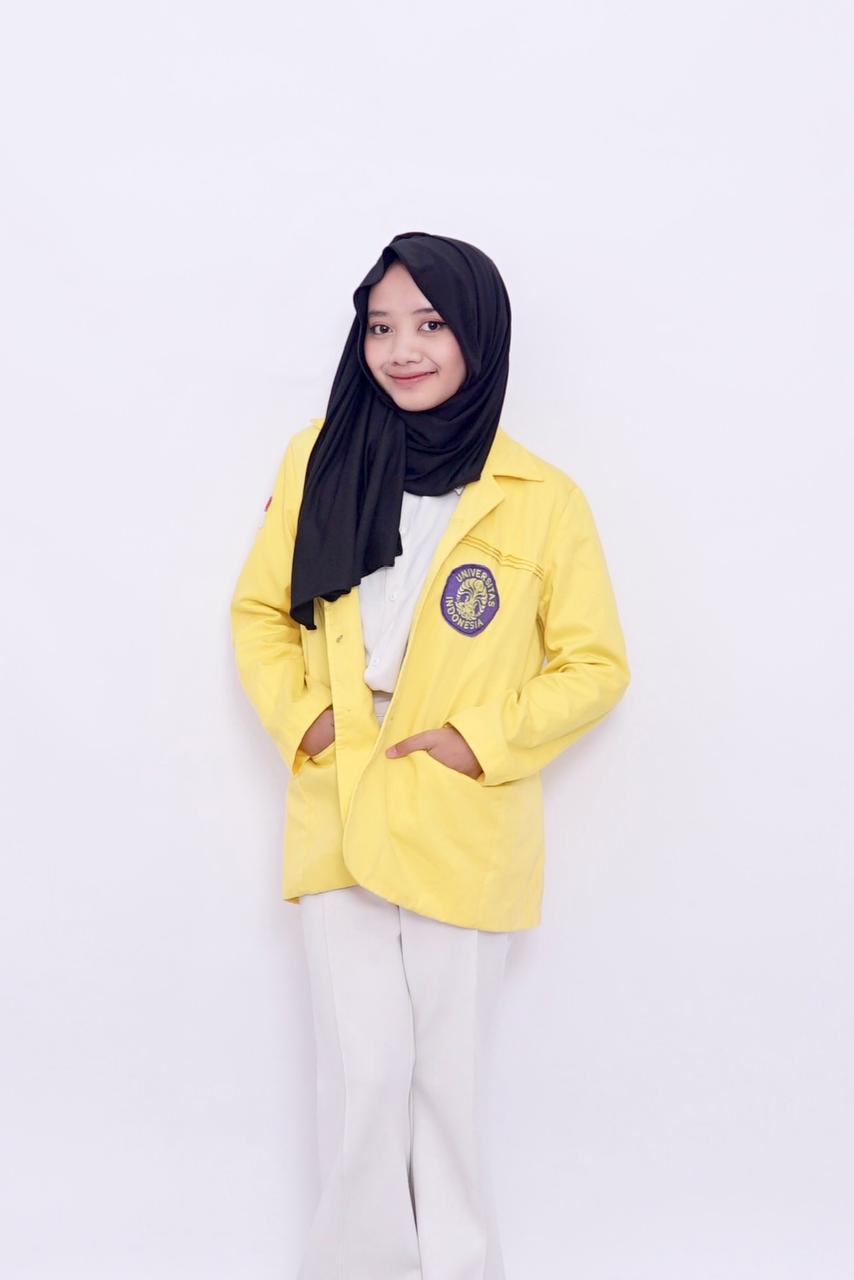Amira Puji Hastuti, a Nutrition undergraduate student from the Faculty of Public Health (FPH), Universitas Indonesia (UI), Class of 2023, has brought pride to Indonesia on the international stage. Together with two teammates from the same field—Duaa Kambal from Emirates Health Services and Ezekiel P. Guanbie, a Doctor of Pharmacy student from the University of Liberia—Amira won First Place at the prestigious Planetary Health Challenge 2025 for their development of an eco-friendly river filtration technology.
The innovation, presented on April 23, 2025, during the final round of the Planetary Health Challenge 2025, is called Mozena (Moringa Seeds and Zeolite Net-Based Mercury Filtration Through Indigenous Empowerment of the Dayak People in the Kapuas River, Kalimantan, Indonesia). This device was designed as a solution to water pollution caused by mercury waste, which has long threatened the health of Indigenous communities in Kalimantan, particularly around the Kapuas River.
In an interview, Amira explained that Mozena was designed as a nature-based solution aligned with the cultural values of the Dayak Indigenous people. “The Dayak people have strong local wisdom in environmental conservation. They are more receptive to nature-based solutions. That’s why we developed a tool that is not only effective but also culturally appropriate and environmentally sustainable,” said Amira.
Mozena resembles a fishing net but functions as a water filter using natural active ingredients such as zeolite, moringa seeds, and chlorine tablets. These materials were chosen for their abundance in the Kalimantan forests and availability in other countries like Liberia, making the technology scalable and globally replicable.
More than just a piece of technology, the innovation serves as advocacy for equitable access to health in remote areas. “Rural communities, such as those in Kalimantan, often lack access to health services and technology. Yet, prevention is the most strategic approach to avoiding the severe health impacts of mercury exposure. Through Mozena, we hope to help communities access clean water as a fundamental health right,” Amira emphasized.
Dean of FPH UI, Prof. Dr. Mondastri Korib Sudaryo, M.S., D.Sc., expressed her pride and appreciation for the student’s achievement. “The accomplishment of Amira Puji Hastuti in the Planetary Health Challenge 2025 is concrete evidence that students from Universitas Indonesia, particularly from the Faculty of Public Health, can make meaningful and global contributions. The Mozena innovation, rooted in local wisdom and ecological approaches, reflects academic excellence and interdisciplinary creativity—aligning perfectly with UI’s vision as a leading and impactful university,” said Prof. Mondastri.
“This is a prime example of how science and technology can be developed while embracing traditional knowledge and local culture, making them more acceptable to the communities they aim to serve. We hope this achievement will inspire and motivate other students to create excellent, impactful innovations for Indonesia and the world,” she added.
The Planetary Health Challenge 2025 is a global competition organized by the Planetary Health Alliance, a worldwide organization fostering innovation to address human health challenges caused by ecosystem degradation. The competition gathers ideas from students and researchers around the world in search of transformative solutions for planetary sustainability.
As one of the top three finalists, Amira’s team has been invited to attend the Planetary Health Annual Meeting (PHAM) from October 7–10, 2025, in Rotterdam, Netherlands, to present their project before global experts and policymakers. (ITM)

